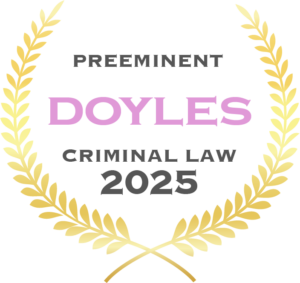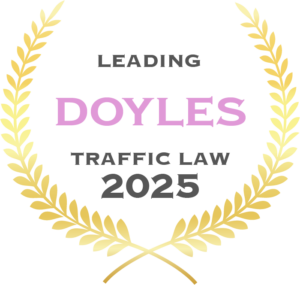The Law Enforcement Complaints Commission (LECC) has recently found an officer to have engaged in serious misconduct by using unreasonable force during a routine traffic stop. This finding contrasted an internal police investigation that found the motorist’s complaints of unreasonable force ‘not sustained’.
The LECC plays an important role in promoting the integrity of the NSW Police Force by ensuring that they carry out their functions and powers properly. The LECC independently investigates and exposes serious officer misconduct, and oversees and reviews conduct of the NSW Police Force.
The independence of the LECC is central to its function. In its recent findings concerning the use of unreasonable force in the traffic stop, the Commission commented that internal police investigations are at risk of being subject to actual or perceived bias, as it is likely that the officer investigating the complaint would have a relationship with the officer under investigation.
In 2018, the LECC assessed 2547 complaints of misconduct. However, funding cuts meant that only 2% of these complaints were fully investigated. The lack of ability for the LECC to assess the majority of complaints has the potential to undermine public confidence in the Commission.
What is ‘serious misconduct’?
Serious misconduct is defined in the Law Enforcement Conduct Commission Act, and includes
- conduct of a police officer that could result in prosecution of the officer for a serious offence, or serious disciplinary action against the officer for disciplinary infringement,
- a pattern of officer misconduct which is carried out on more than one occasion (or involves more than one participant) and is indicative of systemic issues that could reflect adversely on the integrity and good repute of the NSW Police Force or Crime Commission,
- corrupt conduct of an officer.
The LECC provides examples of what constitutes ‘serious misconduct’. Serious misconduct may occur if police:
- solicit or accept bribes
- pervert the course of justice (for example by planting evidence at a crime scene or interfering with a brief of evidence)
- commit a serious assault
- release confidential police information to criminals
- engage in improper relationships with criminals
- manufacture, cultivate or supply prohibited drugs
- commit crimes attracting a minimum of five years’ imprisonment (for example, serious fraud).
What are the consequences of a finding of serious misconduct?
The Commission can make findings and form opinions as to whether serious officer misconduct has occurred, or is likely to occur. While the Commission itself cannot find a person guilty of a criminal offence or disciplinary infringement, it can seek advice from the Director of Public Prosecutions as to whether criminal prosecution should be commenced against an officer. The LECC can also make recommendations concerning whether disciplinary action should be taken by NSW Police or by the Crime Commission.
Who can make a complaint to the LECC?
Anyone can make a complaint concerning serious police misconduct or maladministration to the LECC, including members of the public and public officials. A complaint may be made anonymously.
Key Takeaways
- The Law Enforcement Complaints Commission (LECC) in NSW plays a crucial role in maintaining the integrity of the NSW Police Force by investigating serious misconduct.
- Despite its importance, the LECC faces significant funding challenges, limiting its capacity to fully investigate complaints. In 2018, only 2% of 2547 complaints were fully investigated.
- The LECC's independence is vital for unbiased investigations, contrasting internal police reviews that may suffer from perceived bias.
- Funding cuts threaten to undermine public confidence in the LECC's ability to hold law enforcement accountable.
What if police illegally obtain evidence?
Illegally obtained evidence is evidence that is collected in contravention of NSW law, for example, recording a conversation or obtaining certain documents without a valid warrant.
While not always amounting to ‘serious misconduct’, if police obtain evidence in an illegal manner, the court has a discretion to refuse to admit that evidence. A court may still admit the illegally obtained evidence if the desirability of admitting the evidence outweighs the undesirability of admitting illegally obtained evidence. In weighing up these matters, the court may consider factors such as the importance of the evidence in the proceedings, the nature of the offence, and the gravity of the contravention of the law in obtaining the evidence.
If you have been charged with an offence, or are concerned that evidence against you may have been illegally obtained, you can contact the team at Hamilton Janke Lawyers 24/7 by calling 4038 1666.
Written By

James Janke
James Janke is founding partner at Hamilton Janke Lawyers, and has more then decade of experience as a Criminal Defence Lawyer. Admitted to both the Supreme Court of New South Wales and High Court of Australia




